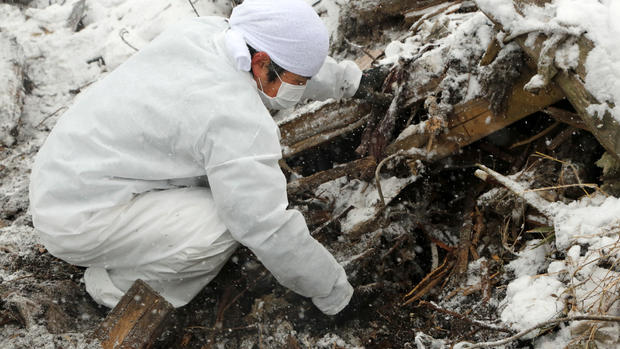Can Japan stem nuke plant leaks with icy dirt?
FUKUSHIMA, Japan -- In the shadow of Fukushima Daiichi power plant's quake and tsunami-battered Unit Four building in northeast Japan, teams of workers clad in tungsten-reinforced gear to shield their bodies from radiation levels 1,000-times normal are taking on a massive drilling project.
They're rushing to install hundreds of freezing pipes 100 feet down into the earth. It's the same idea behind ice skating rinks, but here -- if all goes as planned -- when they flip the switch next year a mile-long "ice wall" of frozen soil will seal in the four damaged reactors and stop contaminated, radioactive water leaking out.
It's not new technology. Ice walls have been used in public works projects all over the world, but the challenge here is to do it in a risky, highly radioactive environment. That's why it's taking up to twice as long to build this structure as it would somewhere else.
Time is of the essence. The site is already packed with storage tanks, many holding enough tainted water to fill 180 Olympic-size pools. But the steel tanks are vulnerable to future earthquakes and tsunami, and with rainwater and groundwater continually flowing into the reactors, 100,000 gallons of fresh water is contaminated every single day.
It is a serious threat to the ocean, and to the workers trying to dismantle the nuclear plant.
Plant boss Akira Ono admits the ice wall alone won't fix the contaminated water problem, but calls it a "major weapon" in his team's arsenal.
Critics question whether the $300 million frozen dirt barrier will actually work, but officials with the utility responsible for the Fukushima plant say a test version did its job, and they guarantee the cryogenic wall can withstand power failures and earthquakes.
It will have to be durable if it's to last -- as promised -- until all the radioactive water is cleared from the site; that could take six years.
